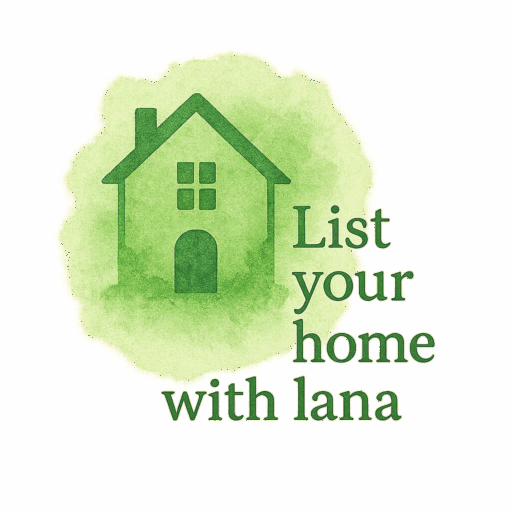Introduction
So you’re thinking about buying a home — exciting, right? It’s one of the biggest financial decisions most people make in their lives. But before you start picking out curtains or browsing dream homes on Zillow, there’s one major question to ask: Are you financially ready to buy a home?
In this guide, we’ll walk through the five biggest signs that scream, “Yes, you’ve got this!” — plus some insider tips, real-world advice, and useful links to guide you every step of the way.
Whether you’re a first-time buyer or just unsure if the time is right, let’s dive into what financial readiness really looks like.
1. You Have a Stable and Reliable Income
Why Consistent Income Matters
Let’s kick this off with the obvious: you need steady income. If you’re hopping between jobs or unsure how much you’ll earn next month, that’s a red flag for lenders — and honestly, for your own peace of mind.
A stable paycheck means you can plan, budget, and confidently say, “Yeah, I can handle a mortgage.”
How Lenders View Your Earnings
Lenders typically want to see two years of consistent employment in the same field. If you’re self-employed, they’ll want tax returns and proof your business is solid.
💡 Pro Tip: Use your employment history as leverage. Solid W-2s? You’re golden.
Helpful Tip: Job Changes Before Buying
Planning to switch jobs? Be careful. Even a better-paying gig can temporarily jeopardize your loan approval. Lenders don’t like uncertainty, especially right before closing.
2. You’ve Saved Enough for a Down Payment
What Is a Reasonable Down Payment?
Here’s where things get real. You don’t necessarily need 20%, but the more you can put down, the better.
Typical minimums:
- FHA loan: As low as 3.5%
- Conventional loan: Around 5-10%
- VA/USDA loans: Sometimes 0% (but not for everyone)
Having that chunk ready tells lenders, “Hey, I’m invested in this.”
FHA vs Conventional Down Payment Options
Check out the full breakdown on home financing options to compare down payment requirements. FHA loans might offer lower upfront costs, but conventional loans can save you on long-term mortgage insurance.
Use This Home Buying Checklist
Need help keeping track of all this? Bookmark this home buying checklist — it’s gold for staying organized.
3. You Have a Good Credit Score and History
Why Credit Score Matters in Home Financing
Think of your credit score like a trust meter. A high score = lower interest rates, better terms, and more loan options.
Here’s a quick cheat sheet:
- 740+ = Excellent (get the best rates)
- 700–739 = Very good
- 620–699 = Fair to good (still okay for many loans)
- Below 620 = Tougher, but not impossible
Tips to Improve Your Credit
If your score’s not quite there, no worries. Try these:
- Pay down credit cards
- Avoid new credit inquiries
- Fix errors on your report
Also, dive into tips on managing home loans if you’re working on your credit but still want to buy.
Check Your Mortgage Readiness
Want to estimate your loan potential? Tools and calculators are great, but speaking with a pro is even better. Head over to home financing tips for tailored advice.

4. Your Debt-to-Income Ratio Is in Check
Understanding the DTI Formula
Here’s the formula:
DTI = (Monthly debt payments / Gross monthly income) × 100
So if you earn $5,000/month and pay $1,500 in debts? Your DTI is 30%. Most lenders want to see something under 43%, with 36% or lower being ideal.
Ideal DTI for Mortgage Approval
Keep your debts lean. Pay off credit cards or personal loans before applying. That not only boosts your chances — it gives you more wiggle room when the unexpected happens (hello, roof repairs).
Avoid Common Home Loan Pitfalls
Explore the most common mistakes buyers make with mortgages so you don’t fall into the trap.
5. You’re Prepared for Hidden and Ongoing Costs
Beyond the Price Tag: Ongoing Homeownership Costs
Buying a home isn’t just about the mortgage. It’s:
- Property taxes
- HOA fees
- Utilities
- Insurance
- Routine maintenance
If you can budget for all of that — and still sleep soundly — you’re in a great spot.
Budgeting for Maintenance and Emergencies
Experts recommend setting aside 1-2% of your home’s value per year for maintenance. That means $3,000–$6,000 annually for a $300K home.
Need more on this? These homeownership tips cover everything from lawn care to leak detection.
Learn More Homeowner Tips
Your best prep weapon? Education. Tap into the home maintenance archive and start prepping like a pro.
Bonus: Emotional and Lifestyle Readiness
Are You Ready for the Responsibility?
Owning a home isn’t all movie nights and backyard BBQs. It’s mowing the lawn, fixing the heater, and being your own landlord.
Ask yourself:
- Do I want long-term roots?
- Am I okay giving up flexibility?
- Can I handle unexpected costs without panic?
Homeownership vs Renting
Still torn? Compare the pros and cons with real estate market trends to see what works best in your area.
Final Thoughts
Buying a home is thrilling — but it’s also a big leap. The good news? You don’t need to be a millionaire to be ready.
If you’ve got steady income, a healthy down payment, a solid credit score, a manageable debt load, and you’ve budgeted for the extras, you’re probably ready to take the plunge.
And when you’re ready, explore home buying tips and lean on local experts who’ve helped buyers just like you. Your dream home might be closer than you think.
FAQs
1. How much money should I save before buying a home?
You’ll want enough for a down payment (usually 3.5–20%) and closing costs (2–5%), plus 3–6 months of emergency savings.
2. Can I buy a home with bad credit?
Yes, but it may limit your loan options. Consider improving your score or exploring FHA and other flexible programs.
3. What’s a good credit score to buy a home?
Generally, 620 is the minimum for most loans, but 740+ gets you the best rates.
4. Is renting better than buying in 2025?
It depends on your goals. For stability and long-term equity, buying is often better. Compare current real estate trends.
5. What hidden costs should I expect when buying a home?
Think taxes, insurance, repairs, HOA fees, and maintenance. Don’t forget to budget for furniture and moving costs, too.
6. How do I know if I’m ready emotionally to buy a home?
If you crave stability, don’t mind maintenance, and want to invest long-term — you’re likely ready. Explore more homeowner tips for support.
7. What are some cities where it’s better to buy than rent?
That depends on the market. Check out local info in the cities section to find buyer-friendly areas.


